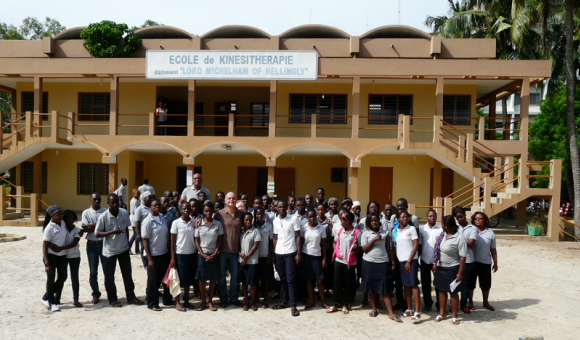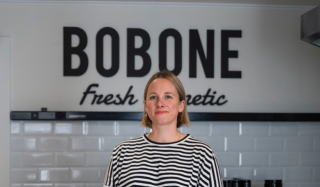
The Head of the Medical Rehabilitation Division at the Beninese Ministry of Health was able to attend a training course at the ULB thanks to an ARES grant awarded within the context of a partnership between the APEFE and the ULB.
The Head of the Medical Rehabilitation Division at the Beninese Ministry of Health, Mr Corneille Assogba, received a grant from ARES awarded within the context of a partnership between the ULB and the APEFE to integrate physiotherapy into the Beninese health system. Thanks to this grant, he was able to attend a course in Belgium from 9 July to 16 September.
The objectives of this course were to develop tools for collecting information and to develop his understanding of statistics and of using tools for analysing data from surveys so as to complete the research protocol for the study into the reasons behind low rates of uptake for rehabilitation services on the part of disabled people in Benin.
To do so, Corneille Assogba attended intensive classes in epidemiology, statistics and analysis, and the use of analysis software at the ULB. Through these classes, he was able to learn new skills: “Throughout this period, we acquired skills which enabled us to gradually improve the research protocol which had been suggested.”
Furthermore, these classes also improved the quality of his research methods: “The quality of teaching enabled us to develop the research methodology and better specify techniques for collecting and analysing the data relevant to our study. In this way, we were able to put in place the statistical tests we needed to achieve our research objectives.”
In the last week of his trip, practical guidelines for collecting data were set and the tool for collecting data was developed and finalised with the support of the ULB teachers involved in the project. “In this way, the indicators to collect in the field, for the chosen methodology, the questionnaire, were drafted, amended and validated,” he explained to us.
Back in Benin, Corneille Assogba will need to put these new skills to use in carrying out surveys so that the collection and analysis of data may lead to the publication of scientific articles on the reasons behind the low rates of uptake of rehabilitation services on the part of disabled people in Benin. The results of this study will also serve to define concrete actions to implement so as to improve access (financial, geographic and cultural) among disabled people to rehabilitation services in Benin. This last phase of the project will also take part under the supervision of ULB teams, within the context of their partnership with the Beninese Ministry of Health.






